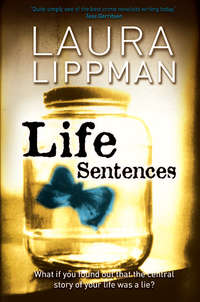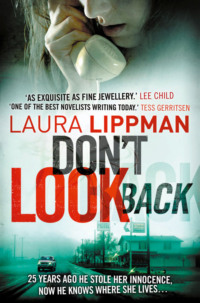
Полная версия
The Innocents
“Mickey,” Gwen called, trying to get her to stop. But now Sean was beside her, then Tim, then Go-Go. Gwen had to step up.
Although the day was not bright, we still needed time for our eyes to adjust once inside. It was a simple room. Something—burlap—had been tacked over the windows, which accounted for the dimness. There was a chair, a small plastic tub that held dishes. A rickety pair of cabinets hung crookedly on the back wall and there was a makeshift counter—it looked like something you’d find on a church altar—piled with boxes and canisters. The cabin wasn’t neat, but some sort of order was at work. Someone was taking care of it, in a fashion. The only really messy thing in the room was a pile of rags left on a cot. These smelled, too, not like the outhouse, but of something dank and strong.
“Who lives here?” Go-Go asked in a hoarse, awed whisper.
“No one lives here,” Sean said. Sean didn’t like to be wrong. “Hunters use it, maybe, but you couldn’t live here.”
“Hunters?” Gwen asked. “In Leakin Park? Is that legal?”
“No, but that doesn’t stop some people.”
Go-Go, with his magpie eyes, had spotted something glinting. “Look,” he said, darting toward the cot with the pile of rags, no longer perturbed by the smell. “A guitar.”
As he crouched down to drag the guitar from beneath the cot, a hand shot out from the pile of rags and grabbed Go-Go firmly by the wrist.
“Don’t,” the rags said.
CHAPTER SEVEN
Sean still needs a moment to register where he is when he awakens, although he has been staying at his mother’s house for almost a week now. Not. Home. This is his first conscious thought the morning after Go-Go’s funeral. He’s not at home, and home is St. Petersburg. He’s clear on that much. The first clue is the light. It is different from his bedroom in Florida, especially this time of year. He loves the light in Florida. It’s one of the few things he loves. The light, winter, and the lack of state income taxes. But this room is dark, depressing, although he’s glad for the darkness this morning. His head is so heavy, his mouth and throat feel as if they are coated with sand. Not a hangover, exactly, if only because Sean believes he never gets hangovers. Allergies, perhaps. He thought he had outgrown them, but maybe he’s just not allergic to stuff in Florida.
So: Baltimore. So: a dark room, although it’s beginning to brighten around him. The light is gray, watery, the sheets a little grainy beneath him, as if someone has been eating here, as if these are the crumbs of crumbs of crumbs. Go-Go ate in bed, among other things. Go-Go still fouled the sheets when he was nine or ten. Their mother made excuses for him, said it was a medical condition. But the medical condition vanished when Go-Go was given the single room that, by all rights, should have been Tim’s, then Sean’s when Tim left for college. It was a narrow, dark room, not particularly desirable except for its solitary state. Besides, Tim and Sean enjoyed rooming together, talking late into the night. Go-Go, always terrified of being left out, ended up more left out than ever.
Sean’s in a double bed, but that’s right. The twin beds in his room were replaced by a double bed when his mother decided the room needed to be at least nominally welcoming to her sons and their wives.
Only this bed moves. Sways and rolls beneath him.
But maybe that’s okay, too? At home, he has a memory foam mattress, bought because his wife, Vivian, is a light sleeper, so the movement is merely relative to what he’s used to. His mother is not someone to splurge on a mattress that was used, at most, five or six nights a year, because Tim never sleeps over, and Sean is lucky to make it home for Christmas. And when Go-Go returned home, he always chose his old room, dark and sunless and unimproved as it was.
The bed moves again, an actual roll. Sean sits up, puts his palm against the mattress. Warm to the touch, it pulses.
“A water bed?” he asks wonderingly, waiting to awaken from yet another banal dream. Sean has the dullest dreams of anyone he knows, assuming other people tell the truth.
“I know,” replies a woman’s voice, with a little throb of Baltimore in it. Aye knoah. “I’m such a cliché. The swinging flight attendant and her water bed.”
Mickey—McKey—is standing across the room, her back to him as she fashions her long dark hair into some kind of upsweep. She is wearing a navy dress, and even in the pale light of what Sean realizes now is very early morning, it looks a little cheap and too tailored for McKey. Funny, she lived in jeans and overalls when they were kids—she was defiantly not a girly-girl, not like Gwen—but she was, well, sexy, even when she was eleven. Sean, two years older, felt guilty for noticing that and felt angry when Tim actually articulated the same thoughts, lying in their twin beds. “I saw Mickey’s underwear yesterday. That’s why I let her lead the way—when she’s going up the hill and wearing those old cutoffs, you can see right up them. She’s got a bangin’ body.”
She still does. The tailored dress—her uniform, duh—can’t hide that, but it doesn’t take advantage of it, either. McKey should have been a flight attendant back in the day when they were called stewardesses, when being a Pan Am or TWA air hostess was basically one step away from being a beauty pageant contestant. As a child, she always seemed slightly out of place—in her boyish clothes, in her friendship with Gwen, in her chaotic household, a thousand times crazier than his. Yet the undercurrents in her house never seemed to touch Mickey, whereas the relatively mild disorder of the Halloran household resonated within Go-Go. He was like a tuning fork, vibrating from the tiniest bit of tension, while Mickey could be still and composed in the middle of a hurricane. Literally, come to think of it.
When Go-Go was in his twenties and going through the twelve steps for the first time, he came to the making-amends part and ended up twisting it, demanding that his parents apologize to him for the handful of spankings he had been given, all quite justified in Sean’s view. Go-Go also cited the time his mother had tied him to the laundry pole because she had to go to the grocery store and Go-Go threw a tantrum and refused to get in the car. Yes, it had been primitive, inexcusable, but their parents were throwbacks, raising their children as they had been raised. They had been younger than most of their peers, Doris only twenty-two when Tim was born. And while they were native Baltimoreans, going back two generations, they could have been right off the boat in a lot of ways. The Hallorans seemed perpetually baffled by the world at large and always—what were the phrases they used? At the end of my rope. This is the last straw. When they counted to ten, they started at nine. Angry, angry people, although his mother prefers not to remember that now.
So many memories clamoring for his attention. But not one of them can change the fact that he is in McKey’s bed, his head throbbing, and she’s getting dressed.
“Where—”
“My apartment in Riverside, south of Federal Hill,” McKey says. “Close to the highway—hear it?—but also only ten minutes from the airport. Not really within walking distance of the restaurants and bars, except for Rub, the barbecue place across the street. That’s where we went last night.”
She’s toying with him. If McKey were a cat, she would spend hours batting her prey between her front paws, she would tease other animals to death. Sean takes inventory. He is shirtless, but he has his jeans on, boxers beneath. Surely—
“I took your keys away from you,” she says. “You were way too drunk to drive. Tim was long gone, and Gwen didn’t come out with us. Said she had to get up early to drive over to her house, have breakfast with her daughter, that she was already guilt-ridden about missing her bedtime. That story doesn’t quite hang together, does it? Her moving back home, I mean. They’ve got the money to provide her old man with all the care he needs. I thought about being a nurse. For about three seconds. It wasn’t the gross stuff that changed my mind. As you know, nothing really grosses me out.”
Sean nods carefully, not wanting to move his head too much. His headache is worse than he realized. It feels like a blister, like something he yearns to pop, but shouldn’t. Mickey is right, she never shied away from things that other girls, even some boys, found disgusting. She would touch anything they found and with her fingers yet, not stand back, prodding with a stick. Except for snapping turtles. On those she used a stick.
“But all that, well, caring. It’s exhausting, being all about another person. That’s why I’m not married, although I tried it. A flight attendant—those expectations I can meet. A drink, a blanket, a meal when I work first class. Maybe a little bit of attention when some guy gets on all pumped about himself, needs to find a way to brag while pretending he’s not. It’s funny, it’s never the really famous or successful people who hold forth about themselves. I haven’t had that many celebrities on my flights—I fly mainly Baltimore to Detroit, sometimes Minneapolis and sometimes I’m on a route that continues to Seattle—but I’ve had some famous people on board and they really do NOT want to be hassled. They want to be recognized, sure, but that’s enough. No, it’s usually some salesman who’s just made, I don’t know, whatever milestone his industry uses, some big sale or award, who needs to impress upon me just how very, very successful he is.”
Sean doesn’t recall McKey talking this much. Maybe that is another change, part of the transformation from Mickey to McKey. One of the nicest things about Mickey was that she used words for concrete, tangible purposes. Let’s go here. Let’s do this. She had been like a boy that way. A boy with a bangin’ body.
“We didn’t have sex,” she says, turning back from the mirror, fiddling with her scarf.
There’s the girl he remembers. Direct and blunt.
“You were wasted. I had to drape your arm over my shoulder to get you here. You didn’t even drink that much, not that I noticed, but you were fucked-up. And suddenly, really fast. If Tim had seen the way you were headed, I don’t think he would have left when he did.”
Sean feels as if he remembers the evening, which isn’t quite the same as remembering it. There was barbecue, quite decent, and he was drinking beer. He switched to Jameson at some point, but he didn’t pound shots or anything. He didn’t drink that much, but he probably hadn’t been eating regularly. Funerals were like weddings that way. Family members barely got a bite down, they were so busy consoling the people whose ostensible job was to console them.
Of course, the guest of honor at a funeral never eats at all.
McKey sits on the water bed, which shivers beneath them, exacting a toll on his aching head.
“I wanted to,” she says. “But you’re married. Happily, Gwen told me. Warned me. Maybe that’s true, but I think she wants you for herself.”
“I am,” he says, his voice weak, croaky. “Happily married. I’ve never—”
“Of course you haven’t. You’re the good one. You’ll always be the good one, Sean.”
If he is so good, then why is he thinking about what it would be like to take that uniform off McKey?
“It’s my fault, how drunk you got,” she says matter-of-factly, patting his cheek. “I wasn’t thinking of you, only myself, what I needed to tell you. Of course it was upsetting. I kept talking and talking, and you kept drinking because I wasn’t letting you get a word in edgewise.”
He has no idea what she is referring to. His blankness must be transparent because she then says: “You don’t remember? Maybe it’s for the best. We’ll talk about it later. Or maybe not. I’m sure it was hard. And it violated everything AA is about. Still, I thought you should know, and we ended up alone together in a bar.”
“In a bar.” But she just mentioned AA. Something’s not hanging together.
“They know me there,” she says. “I drink club soda with a splash of tonic and lime. It looks like a gin and tonic and it keeps people from being so damn pained around me. There are different ways to be sober, you know. Some of us learn to navigate the other world, the one where people drink. Go-Go was the opposite. When he went into a bar, all he saw, all he thought about, was drinking. There was no other reality for him. He shouldn’t have tested himself that way. I wasn’t there, but I can figure out what happened, Sean. I know.” No trace of the arch Baltimore accent this time. “I don’t care what anyone says. Go-Go didn’t kill himself. He got drunk. He crashed. End of story. No matter what the toxicology report says. It would take very little alcohol to fuck him up.”
She glances at the clock on the wall. It is charming, yet generic, the kind of thing Sean’s wife despises. His wife’s entire life centers on not having anything that anyone else has. She buys into the idea that there is one perfect everything, all the way down to the light plates. The problem is, Vivian’s process is so time-intensive that it never ends. Every time she “finishes” one room, another room is begging to be redecorated, having gone out of style or spawned low-end imitators, which means she is no longer one of a kind.
“Gotta go,” McKey says. “Just push the button on the lock, don’t worry about the dead bolt. I don’t. Another perk of this location. It’s pretty safe.”
She kisses him on his cheek and leaves, sending the water bed lurching again. After a few minutes, Sean manages to heave himself out of it without actually heaving, gathering up his shirt and socks, folded neatly in a chair, locating his shoes, oxfords that someone—well, OK, McKey—has untied and removed, finding his jacket and overcoat in the closet. She wanted to sleep with him. He can’t help feeling good about that.
Only what did she tell him about Go-Go, exactly? Something about Go-Go and AA, why it wasn’t working for him. Why can’t he remember? Is it possible he simply doesn’t want to remember? Sean has always been very good about forgetting inconvenient things.
Summer 1978
CHAPTER EIGHT
“Don’t touch my guitar, little boy.”
The voice was as grimy as the hand, low and guttural and flecked with debris, but matter-of-fact, not particularly harsh or threatening. Although we had all yelped when the hand shot out—even Tim and Sean, although they later denied it—we felt strangely calm. Except, perhaps, Go-Go, who writhed in the hand’s grip but could not free himself. Go-Go was terrified.
The man sat up, releasing Go-Go, although Go-Go continued to twist and turn as if held by invisible hands. The man was not really grimy, we saw, but extremely dark-skinned, black as ink, although with large patches of pink-white skin. His forehead, the area around his right eye, his right cheek, and chin were all ghostly, without pigmentation. Later, we managed to find a way to ask Gwen’s father about this without revealing why we were asking. He explained that a person with this skin condition wasn’t a burn victim, as some of us thought, or diseased in any way. But before that explanation was offered, we speculated at length on his appearance. Leprosy, Sean said. A horrible accident, Gwen said. Burned himself up smoking in bed, Tim said. Go-Go said he was a monster, and Mickey said he was just born that way, and she was closest to right.
“What are you children doing in my house?” the man asked us, although the word sounded like chillrun in his mouth. We would come to understand that his words were as soft and mushy as the food required by his rotting teeth, which made his breath fearsome. He didn’t seem angry. He didn’t even seem particularly curious. And, unlike most adults who asked that question, he apparently wanted an answer, a real one. He wasn’t quizzing us as a pretext for scolding us, or setting us up, testing to see if we would lie to him. He honestly thought we might have a good reason for being there.
“We didn’t know it was anyone’s house,” Mickey said.
“We didn’t know it was anyone’s house,” Sean repeated, a little louder. Sean had a way of saying what someone else had already said, yet making the words his own.
“You knew it was somebody’s,” the man said. His voice was mild, though. “Laundry on the line. Chickens. Didn’t you see my chickens?”
He made a clucking sound, and the chickens crossed the threshold, almost as if in a parade. They gave us a wide berth, cutting as large a circle as possible in the small house. He picked up the one in the front, stroking it and cooing to it as if it were something much more cuddly, a kitten or a puppy.
“Do you eat them?” Go-Go asked, and the rest of us wanted to shush him. But the man didn’t seem to mind Go-Go’s question. He didn’t seem to mind Go-Go, which was unusual in an adult. Go-Go got on grown-ups’ nerves quickly, very quickly.
“Sure,” he said. “What else is chickens for?”
“Eggs,” Tim said.
“That’s true,” the man said. “And I eat eggs, too. But I got to make do with what I have. My garden, my chickens, things that folks bring me.”
“What do you do when the cold weather comes?” Mickey asked, bold as ever.
“Build a fire in the stove. Put an extra blanket on the bed. Keep the door shut.”
“And the chickens?”
He had grown tired of the conversation, or tired of us. He bent down and pulled the guitar out from under the bed. We were kids then, all adults were old to us, but Chicken George, as we would come to call him, was especially confounding. You could have told us he was fifty, not that much older than Tim is now, or you could have told us ninety, and we wouldn’t have argued. He was old, someone who had seen a lot and knew a lot.
He began to play the guitar and sing. His voice was awful and he didn’t know the words to whatever song he was trying to play, so there were a lot of uh-huhs and moans. If Mick Jagger had been standing there, he probably would have been in ecstasy at this raw display of old-fashioned blues playing and singing, but we were callow kids. We listened to Billy Joel. Some of us still do, even if we don’t admit it.
“It is customary,” he said when he finished, “to reward a man if you like his song.”
He held out his palm, which was amazingly pink, pink as the pads on a newborn kitten’s feet. It was creased and craggy, a hardworking hand, yet rosy pink. We stared at his hand, not gleaning what he wanted. Sean, at last, put a quarter in it, and the man actually bit the coin. But then he smiled, letting us know he was in on the joke, that he knew biting a coin was something people did with gold pieces in a movie, not with a quarter from Sean’s pocket.
“Well, I guess you weren’t expecting a show, so that’s okay that you don’t have more,” he said. “Tell me your names.”
Mickey took the lead.
“I’m Leia,” she said.
“Han,” said Sean, always quick.
“Luke,” said Tim.
“Carrie,” said Gwen, who couldn’t think of another girl’s name from Star Wars, clearly begrudging Mickey’s decision to crown herself as the princess.
“Go-Go,” said Go-Go, not getting it. Even if he had, he probably would have said R2-D2 or Obi-Wan. It was funny about Go-Go. He lied. He lied a lot, trying to avoid punishment for his various misdeeds. But he was bad at it. He couldn’t tell a lie to save his life. And his honesty often came out at just the wrong time.
“Where y’all live?”
“Franklintown Road,” Mickey said. There probably weren’t four or five houses along Franklintown, but it was nearby and a credible place for us to be from. If we mentioned Dickeyville, we would give ourselves away. Should the man ever come up that way, determined to find the five children who had come into his house and tried to take his guitar—not that we would have taken it, but that’s probably what he thought—he would find us all too easily. All he would have to say is: blond girl, brunette girl, three boys with their hair cut way short, and everyone would say, Oh, the Halloran boys, fat Gwen, and that dark-haired girl they play with.
“And you came all the way down here. Huh. You going to come visit me again?”
It sounded more like a request than a question. Why would we come here again? What was the point of visiting this strange old man, who smelled bad and couldn’t sing?
“Sure,” said Sean, our spokesman.
“I need some canned goods,” he said. “Beans, soup. And I wouldn’t mind some new shirts. I like them flannel shirts, but I need T-shirts, too.”
“Sure.”
Why not agree? We were never going to return here. It was a far walk, something to do on a summer’s day when you had all the time in the world. Come Labor Day and school, we wouldn’t have the time. What was the harm in promising that Leia, Han, Luke, Carrie, and Go-Go would return?
We were back within the week, with all the things he requested.
We called him Chicken George, after the character in Roots, which had aired the previous year. He never seemed to remember our names, nor notice when we slipped and used our real ones. He asked almost nothing of us, beyond the canned goods and old shirts we pulled from our parents’ homes, and each visit was the same: he would play his guitar, singing in his caterwauling style, and Go-Go would dance his dance, flinging his body around as only he could. It shouldn’t have been fun and yet it was, if only because it was a secret among the five of us. There was no one else in Chicken George’s life, no one else who knew of him or cared about him. He was ours, a new toy.
And, in time, we treated him as all children treat their toys—with increasing carelessness and indifference.
CHAPTER NINE
For four years, Gwen has lobbied for the right to telecommute, only to receive the most infuriating argument in the world from her boss: she wouldn’t like it. As if she were a child who didn’t know what she wants. But then, Gwen has always hated pronouncements about her character, anyone else’s attempt to define her. She tolerates this tendency, just barely, from loved ones, although Karl’s observations about her these days are hurtful. But she cannot stand it when anyone else attempts to sum her up. She would hate to be profiled in her own magazine, which allots a few breezy sentences, equal parts biography, description, and idiosyncrasy, to summing up someone’s entire character. Besides, her request should be considered on its merits, not on her publisher’s belief that he knows better than she what she wants.
But in caring for her father, Gwen has quickly discovered her publisher is right: she’s not built for telecommuting. Not that she ever wanted to work from home every day. Her work life involves too many meetings and lunches and functions for that to be feasible. But she thought everyone would thrive if she were allowed to work at home one day a week, shutting herself away with her reporters’ copy, free from the interruptions of the workplace. In her father’s house, she has discovered there are even more distractions away from the office than there, and she can’t even blame her father, a stoic patient, almost to a fault. He never asks for anything from her and can barely force himself to seek the day aide’s help.
Gwen keeps cooking, for instance, rationalizing that she is trying to find dishes that are gentle, yet not insulting to her father’s palate. Homemade puddings and soft-boiled eggs in delicate sauces, milk shakes and smoothies. She has tackled the rather messy job of dusting his books, a task he used to do every year but has clearly ignored for at least a decade now.
And then there is her mother’s closet.
Gwen was a senior in college when her mother died. Back then, she was still very much the family baby, still young enough to be allowed the privilege of falling apart while Miller and Fee, proper adults, stepped in and helped her bewildered father make arrangements, short- and long-term. Tally Robison’s end was at once shockingly fast and excruciatingly slow, six weeks from diagnosis to death. It was agreed that Gwen should stay in school, up at Barnard, until the semester ended or she was summoned home. She submitted her final paper on an eerily balmy December day, then returned to her apartment to find the message light blinking on her machine, something that had once heralded only joy, usually in the form of a new conquest: Come home now. It didn’t occur to her to spring for the Metroliner, as the fast train was known then, and the old NortheastDirect wheezed its way down to Baltimore, indifferent to her urgency. By the time she arrived at University Hospital, her mother was dead.






